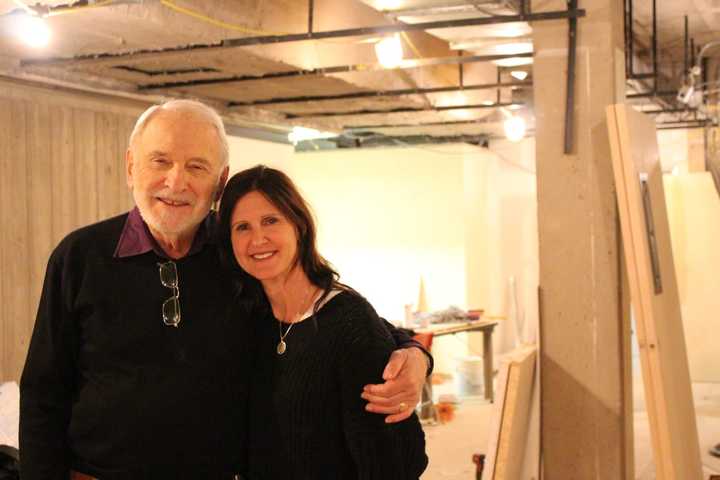It’s due to the renovation of a new 7,000-square-foot space at Rockland Community College where the museum signed a long-term lease and will be permanently located.
The museum was originally founded in 1981 at the Finkelstein Library in Spring Valley by Holocaust survivors where a permanent exhibit was created. After making the move and transitioning to RCC in 2014, the mission was broadened to include education and tolerance.
“I think public awareness has expanded and grown beyond the Holocaust,” said museum Co-President Paul Galan, when considering the devastation that occurred in Rwanda, Cambodia, Bosnia, and the current conflict in Syria. “You can’t avoid it. You have to broaden it, and we believe in the importance of it.”
Given the diversity on the RCC campus it’s important to cover the other topics and draw parallels between the Holocaust and other genocides, explained Galan.
“Education, education, and education is so vital. And that is the only hope for our future as far as we’re concerned.”
Galan himself is a Holocaust survivor and remained with his mother in the former Czechoslovakia throughout. Twice Galan and his mother were turned in by Nazi soldiers and twice they were let go while his father and one of his sisters were taken to concentration camps. (They all survived.)
As a result, he considers it his responsibility to keep the museum and the work it does alive.
“It is something that has affected me profoundly,” Galan said. He initially began helping with the museum in 2004 as he contemplated retirement, volunteering as a survivor speaker.
Not long after he became immersed in the museum’s work.
People and students from school districts in Rockland, Orange, Westchester, and Bergen counties visit the museum annually or request programs, according to the museum’s Executive Director Andrea Winograd. (That day Winograd received a call from the Woodstock Day Camp in Ulster County requesting a visit.)
By January 2017 the exhibits will be in full design-mode and the rebuild will begin, said Winograd. Once complete, in addition to the display of numerous rare and valuable artifacts from the Holocaust, the museum will also offer a new, interactive exhibit aimed at teaching in a tech-driven age, Galan said.
“Holocaust Beyond the Tears,” is an interactive exhibit that draws on Galan’s background as a filmmaker and features over 50 different video stories and accounts of different aspects of the Holocaust from 10 survivors.
“Education, education, and education is so vital. And that is the only hope for our future as far as we’re concerned.”
The deadline for completion is tentatively set for June 2017. Donations from a number of individuals and a capital campaign have given the museum a budget of just over $1 million for the project.
For more information on the Holocaust Museum & Center for Tolerance and Education, click here.
Click here to follow Daily Voice Monsey and receive free news updates.





